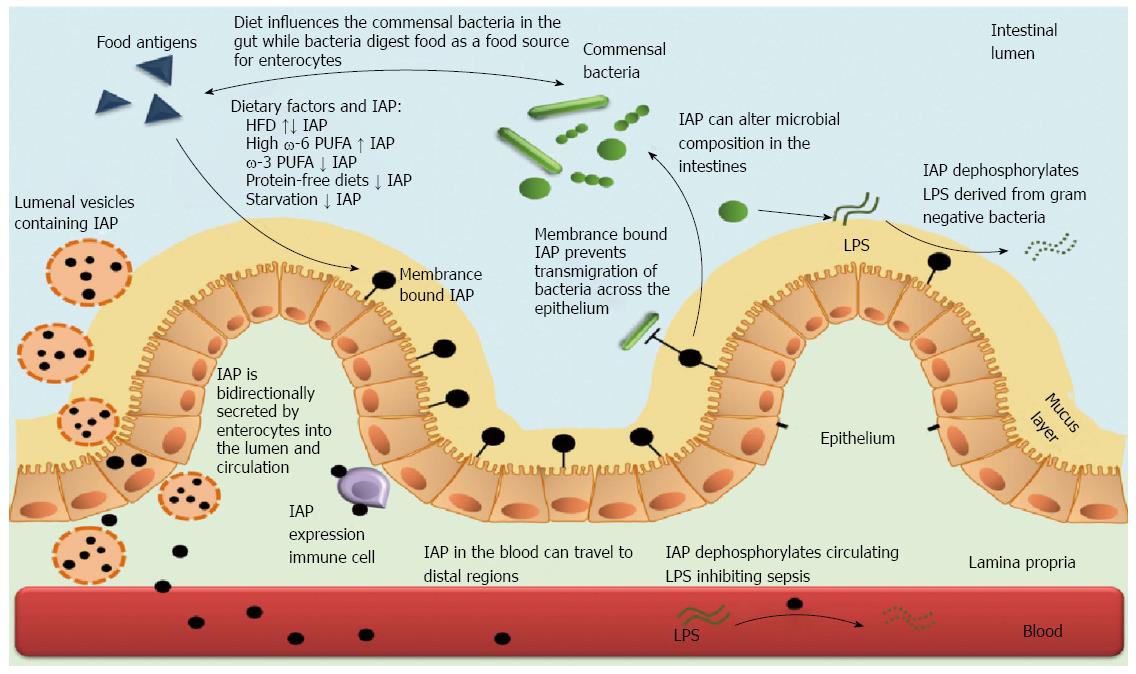Copyright
©2014 Baishideng Publishing Group Inc.
World J Gastroenterol. Nov 14, 2014; 20(42): 15650-15656
Published online Nov 14, 2014. doi: 10.3748/wjg.v20.i42.15650
Published online Nov 14, 2014. doi: 10.3748/wjg.v20.i42.15650
Figure 1 Intestinal alkaline phosphatase regulates gut homeostasis.
Intestinal alkaline phosphatase (IAP) secreted by the enterocytes plays a vital role in various physiological functions in and around the intestine. Though mainly membrane-bound, IAP can be found both in the lumen and blood. High concentration of IAP molecules are present in protein-rich lumenal vesicles on the lumenal and apical side of the epithelium. IAP dephosphorylates both lumenal and circulating lipopolysaccharides (LPS) derived from the cell wall of gram negative bacteria effectively eliminating their toxic constituent. Preliminary work from our lab and others have shown IAP expressed on infiltrated immunocytes in the lamina propria. IAP is also crucial in preventing the transmigration of bacteria across the epithelium layer, preventing downstream activation of immunocytes and the subsequent inflammatory responses. Through its complex relationship with food, commensal bacteria and immune cells, IAP plays an essential role in gut homeostasis.
- Citation: Estaki M, DeCoffe D, Gibson DL. Interplay between intestinal alkaline phosphatase, diet, gut microbes and immunity. World J Gastroenterol 2014; 20(42): 15650-15656
- URL: https://www.wjgnet.com/1007-9327/full/v20/i42/15650.htm
- DOI: https://dx.doi.org/10.3748/wjg.v20.i42.15650









